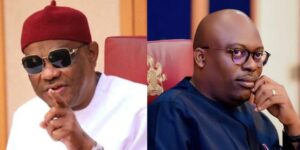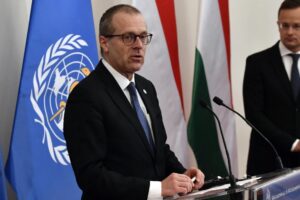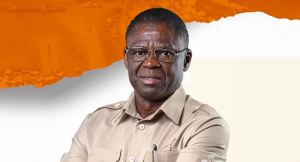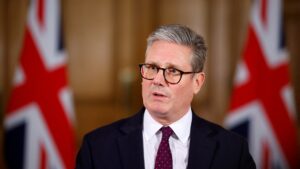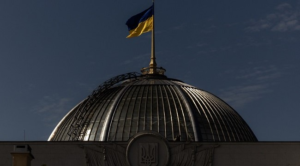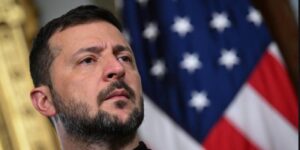
OTTAWA — Prime Minister Justin Trudeau is reviving his practice of holding periodic cabinet retreats outside the nation’s capital — an exercise in regional outreach that his office maintains is worth the added cost of ferrying ministers around the country.
Beginning Sunday, he and his 36 ministers will be holed up in Winnipeg for three days to discuss priorities and plot how to bring them to fruition in a House of Commons where the Liberals hold only a minority of seats.
That is to be followed by a three-day caucus retreat with Liberal MPs in Ottawa, in preparation for the resumption of Parliament on Jan. 27 — its first extended sitting since the Liberals were reduced to a minority in the October election.
The choice of Winnipeg is a nod to the East-West divide exposed in the election. The Liberals shut out entirely in Alberta and Saskatchewan, where voters were irate over environmental policies they believe have gutted the energy industry.
Manitoba, where the Liberals lost three of six seats, is somewhat friendlier territory. The province’s premier, Brian Pallister, has signalled a willingness to try to bridge the divide between the federal government and his fellow conservative Prairie premiers.
Canadians sent us a clear message that they want a government that finds common ground and supports everyone is different regions
Trudeau is to meet separately with Pallister while he’s in town, as well as with Winnipeg Mayor Brian Bowman.
“Canadians sent us a clear message that they want a government that finds common ground and supports everyone is different regions,” the Prime Minister’s Office said in a statement when asked why the retreat is being held outside Ottawa and in Winnipeg in particular.
“We are also committed to listening to and working closely with Canadians in the Prairies to address their specific concerns.”
During his first mandate, Trudeau held eight cabinet retreats outside Ottawa, including two in Alberta.
Conservative MP Candice Bergen, who represents a Manitoba riding, dismissed the Winnipeg retreat as a show of listening to westerners without actually changing any of the “failed policies,” like the federal carbon tax, that Prairie voters rejected.
“If this is to be a sincere effort, the Trudeau Liberals should meet directly with Manitobans to understand how their policies are making life more difficult,” she said in a statement.
Among the issues ministers are expected to discuss during the Winnipeg retreat is what the government calls “the challenges of an uncertain world” — a timely topic as the country tries to come to grips with Iran’s admission that it accidentally shot down a Ukrainian passenger jet last week. The crash killed all 176 people on board, including 57 Canadian citizens and 29 permanent residents.
The retreat will focus primarily on more prosaic matters: the state of the economy, the upcoming budget and how to deliver on campaign promises to bolster the middle class, fight climate change, strengthen gun control and achieve reconciliation with Indigenous Peoples.
And there’ll be a session on how to get it done in a minority Parliament.
On helping the middle class, ministers will get some expert advice from economists Armine Yalnizyan and Kevin Milligan and Canada’s chief statistician, Anil Arora.
On climate change, they’ll hear from economist Andrew Leach and climate scientist Katherine Hayhoe, the duo who last fall graded the major parties’ campaign plans to cut carbon emissions. (They gave the Liberals a B for ambition and an A for feasibility).
Of particular interest to the West, they’ll also get an update on the Trans Mountain pipeline expansion from Bill Downe, the chair of Trans Mountain Corp. and former CEO of BMO Financial Group, and Linda Coady, a former Enbridge executive who heads a committee advising the government on consultations with Indigenous communities that want a financial stake in the project.
Caucus chair Francis Scarpaleggia noted in an interview that this will be the ‘first real working session
The Trudeau government bought the pipeline for $4.5 billion after Kinder Morgan decided to scrap plans to twin the pipeline due to political uncertainty and legal hurdles. The government cleared one of those hurdles Thursday when the Supreme Court of Canada ruled that British Columbia cannot regulate what flows through the pipeline, which is to carry diluted bitumen from Alberta’s oil sands to the B.C. coast for export overseas.
Starting Wednesday, Trudeau and his minister will hole up again for three days in Ottawa with Liberal MPs.
Caucus chair Francis Scarpaleggia noted in an interview that this will be the “first real working session” of caucus since the election.
Since most Liberal MPs have never experienced a minority Parliament before, he expects the retreat will focus heavily on the challenges that will bring, with insights shared from veterans like himself who’ve been there before.

